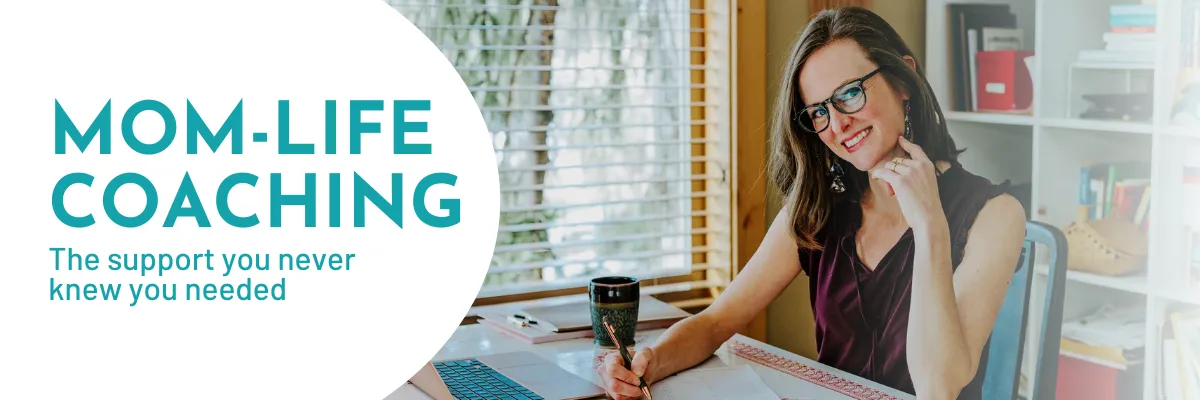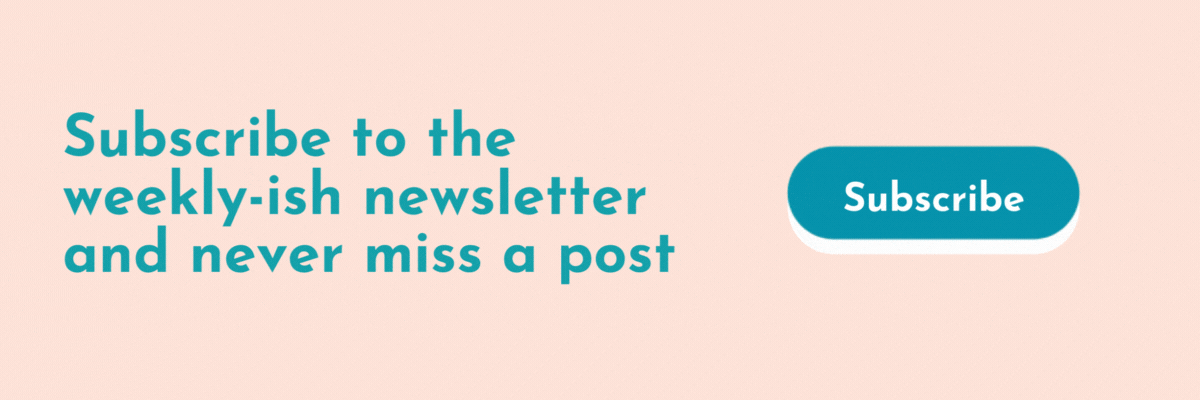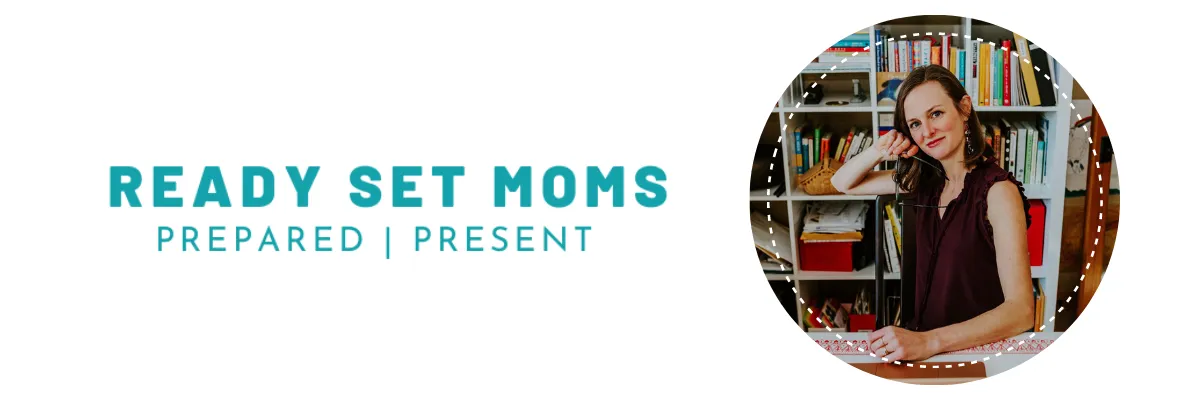Movement, Mindset, and Mom-Life: A Real Chat for Moms (Part 3)
Welcome to Part 3 of the 3-part series “Movement, Mindset, and Mom-Life: A Real Chat for Moms” with Juli McKee and Erika Friday.
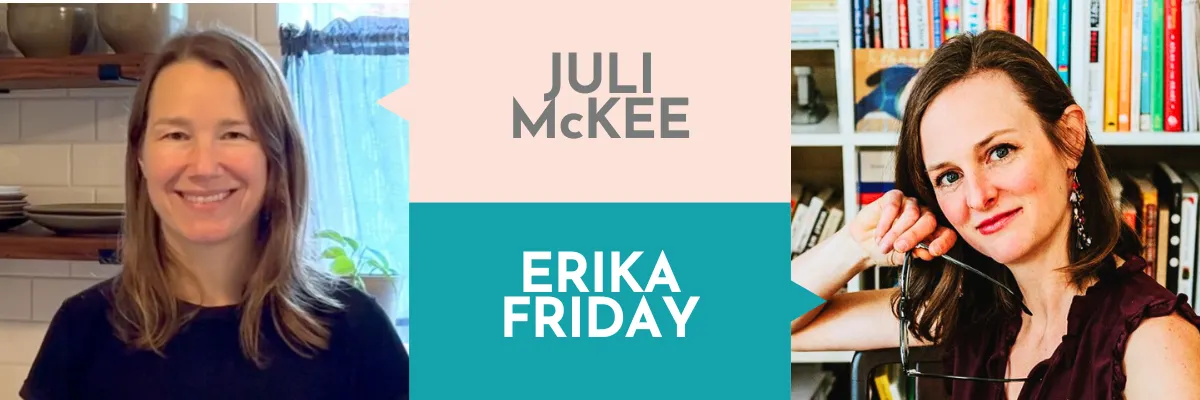
Movement in Motherhood
The physical realities of postpartum movement
Postpartum recovery looks different for every woman — and every stage of motherhood brings new challenges. Whether you're a few weeks postpartum (early postpartum) or months into a new stage of motherhood, reconnecting with your body takes time, patience, and support.
From understanding pelvic floor anatomy to managing diastasis recti, having access to a physical therapist or certified pelvic floor therapist can help ease physical discomfort and support your own health. In a world where women's health is still treated like a social issue, creating space for free movement, daily routines, and control of your body is more important than ever.

Erika: So what are the other factors that make movement after becoming a mother different than before?
Juli: If you carried a baby, a lot of things have changed — your uterus, your hips, your ribs, your physical alignment. Structurally, your body might not return to your familiar baseline.
Diastasis recti is a hot topic, for example. Separation of ab muscles happens in 100% of pregnancies. Your abs separate, your stomach stretches, your hips and rib cage expand. And all of that affects how your core works, how your pelvis tilts.
Sometimes the effects are subtle — you might not notice anything until you’re more active and suddenly think, "Why does my hamstring feel weird?" It might actually trace back to something like a tucked tailbone or shifted hips that never fully realigned.
There are so many little nuances and connections, which is why it's so important to trust your intuition with your body. It’s a new body. You have to pay attention to how it feels — and seek outside support when you need it.
I love referring people to pelvic floor physical therapists. They're incredible. Honestly, I think every pregnant or postpartum woman should see one, even if they feel fine, just to get assessed.
A lot of women experience pelvic organ prolapse — when the organs descend through the pelvic floor. It can be really uncomfortable, and it’s more common than people realize. The pelvic floor muscles themselves can be stretched, weak, tight, or just disconnected, and many women don’t even know where those muscles are, let alone how they’re functioning.
There’s still a lot of hush-hush around this, especially with things like leaking — but it’s common, and it doesn’t have to be accepted as "just the way it is." Having a safe space to talk about these things, to ask "What does this mean?" or "What am I feeling?" is so important.
Exercise during pregnancy — and thoughtful return to exercise afterward — can make a huge difference in comfort, strength, and long-term recovery.
How your relationship to movement changes in motherhood
Let’s talk motherhood movement — not just as a form of physical activity, but as a reflection of identity, growth, and healing. Finding effective movement that works at your own pace and in your own home is more important than ever.

Erika: Something that changed for me after I became a mother was the sort of physical things that I was interested in doing. For example, I've come in and out of enjoying yoga flows based on the vibe, the teachers, the temperature, the crowdedness in the room.
There was this one point where I had had my second baby and I went to a yoga class and I was really annoyed by the teacher-worship and because I didn't want to be told to breathe.
But then there are other times when I just want somebody to tell me what to do. So, I'll go to a certain type of gym class or movement class and getting to let go of some responsibility and follow their instructions can be really freeing, almost more mentally than physically.
Building strength and community as a mom

Mom Fit classes in Bend are helping moms find their way back to an active lifestyle through supportive spaces that focus on functional exercises for full body strength and group check-ins on common questions and themes in motherhood for connection. Mom Fit classes help you in your postpartum journey, every step of the way.
Erika: Connecting what you've been saying about time and movement gets to another idea that I know you and I have talked about, how we benefit from overlapping some of our needs and getting them met in one go. For example, so many moms feel lonely and isolated. If we can get together in community and get movement and be outside with or without our kids depending on what needs we're trying to get met. That's a way to get so much out of say an hour.
Tell us more about your Mom Fit classes in Bend, what those are like and what the women get out of it.
Juli: A lot of women come because they want that group support. It’s a big pull — getting to move your body and also have other women to talk to.
Some are nervous about the social aspect. I think they want it, but they're also nervous about it. And postpartum depression is so much more prevalent than I think we give it credit for. I think having it actually makes it harder to come out, but isolation also makes it worse.
The social piece means a lot. Getting to say, "I had a really hard night last night," and just be heard — that’s huge. I always tell women: You don’t have to feel pressure to exercise. Come sit on the mat, stretch, chat — make it whatever you need. If your baby’s cranky, it’s fine. I’ll hold them.
I want people to feel safe to move, to talk, to get that endorphin boost, to ask questions. There’s always great side conversations happening — about carriers, teething, sleep — the real day-to-day stuff moms need to talk about.
Each week I also bring a conversation starter — something like sleep, nutrition, body image, or weaning — to help spark those natural discussions and offer a few resources.
And from a fitness standpoint, it’s not random — the class is structured and progressive. We’re building strength over time, not just coming in and lifting weights.
Erika: I so admire that within the structure that you're giving them and they're coming for to get the training and make the progress within that you're also teaching them that intuitive piece. How did they show up today? How much energy do they have in the tank? What will actually help them feel better and stronger and more alive in spending this hour? I just admire that so much.
Juli: At Mom Fit, you're welcome to bring your babies with you, and you attend to them as needed. So if you need to go feed or change a diaper or whatever, you do it.
Resetting (or releasing) expectations in motherhood

Releasing expectations around your postpartum recovery and postpartum journey means recognizing that your body—whether you were a marathon runner or new to exercise—needs time, patience, and respect as it heals through each stage of motherhood.
Embracing your limits, moving at your own pace with effective tools like certified pelvic floor therapists, group classes, or educational videos, and balancing structure with flexibility in daily routines will help you honor your here-and-now body while building full body strength and reclaiming control of your body in a safe, sustainable way.
Erika: As we wrap up, there are two things I want to touch on — expectations, and structure and flexibility.
When it comes to expectations, picture someone who's a real athlete — super fit, running marathons, lifting weights — and then they have a baby. Maybe they snap back quickly.
Or maybe they're surprised by how much they need to slow down — because of energy levels, recovery, or their body healing.
Noticing your new limits, accepting them, and working with them will serve you far better than expecting to pick up right where you left off and just saying, "Let’s go!"
That mindset can be punishing — and it can do real damage, too.
Juli: Yeah, physically and mentally, for sure. I'm not a therapist or psychologist — and sometimes a referral is needed — but just hearing that it’s okay to be where you are, and understanding the reasons why, can really help.
I always tell my clients, “Good job, body!” That’s the attitude that actually gets you where you want to go.
We still need to feed our bodies, move, sleep — and most of all, respect them.
You can still have goals and make progress, but let’s honor our here and now body and get there in a safe, sustainable way.
Erika: Love it.
Juli: I'm one of those people that has those expectations on myself. I need to remind myself that I can be happy with who I am now and still want to get better, and there’s no point in beating myself up or comparing myself to somebody else, because that's a trap.
Finding your balance between structure and flexibility

Erika: In mom-life coaching, the balance between structure and flexibility comes up a lot.
Before kids, we usually figure out pretty naturally — or sometimes intentionally — what we prefer.
Some people love structure: wake up at the same time, work out, get the day rolling.
Others thrive on flexibility: look out the window, see it’s a beautiful day, go for a bike ride.
Both types can to struggle in motherhood — because babies don’t always cooperate with your schedule, and they definitely don’t always allow for spontaneity either.
There’s no right answer here. I'm not setting this up for, "Here's what you’ve got to do!"
But here’s what you’ve got to do — know yourself, know your kid, and do your best.
Sometimes you'll have to step outside your comfort zone on that structure–flexibility spectrum. Sometimes it’ll work out, sometimes it won’t. We have to learn to accept that without getting stuck in frustration — and still get what we can out of it.
Maybe you planned for an hour-long workout... and for whatever reason, you only get 20 minutes. Let’s make it a good, worthwhile 20 minutes you can feel happy about. Happy-ish.
Juli: Man, that has many levels. That continues happening, not just with a baby.
Erika: Good point.
Juli: I think that’s true at any age when you’re a parent and your kids rely on you.
Erika: What are your thoughts on structure and flexibility?
Juli: You said that so well. Knowing your own tendencies — and knowing you're going to need flexibility no matter what — is huge. Flexibility with your flexibility, if that's a thing.
Wanting to be spontaneous but not being able to, or planning to be structured and not being able to — it’s the same struggle either way. It applies to so many things.
For me, I love being on time. That wasn't a big deal when my time was my own. Now, my daughter notices — she doesn’t rush to help me be on time, she just says, "Mom, are you getting frustrated because we're going to be late?"
And I say, "Yes."
And she’s like, "It’s going to be okay."
She's five. She’s so lovely. She senses everything I feel, which is beautiful — but it also reminds me to be careful not to pass all my stress onto her.
With exercise and structure versus flexibility, it's the same idea. Some people thrive on structure: they have a gym class on the calendar, same time every week.
Others need flexibility: maybe their baby's nap changes every day, so they pop in an online class when they can. They don’t need the pressure of missing a scheduled class and feeling bad about it.
Ideally, you have access to both — structure when you can get it, and a backup plan when you can’t.
If you have only 20 minutes, what we want is instead of saying "screw it,” using that 20 minutes in a way that still supports you.
You’ve got to have tricks up your sleeve to use that time wisely.
Erika: And I also want to say even when you have this information and as practiced as you and I are on these approaches, it's not always easy. There will still be frustration.
There will still be times when we don't follow through to our highest values or goals. Because this is life and it's hard and we're doing it with people who are unpredictable and we just do our best. And I love when you said, “thank you, self.”
Juli: That's a good thing to remember, too. You’ve got to give that grace. You’ve got to say, I'm doing the best I can. And when I'm ready, I can do better, and I can seek help. But for now, this is where I'm at, and I can sit with it.
Want more support? Connect with Juli and Erika
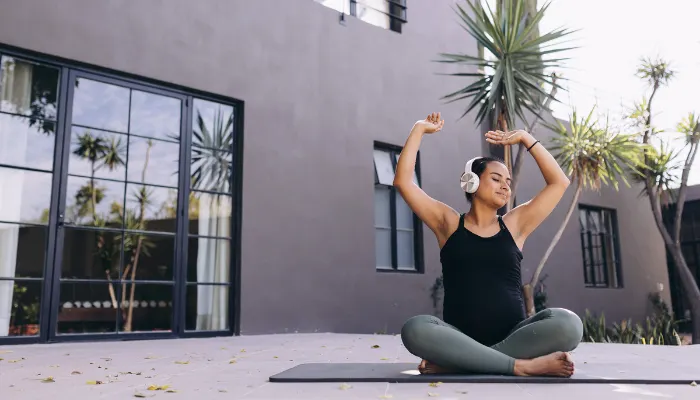
Erika: Let's wrap up by talking about how people can learn more from you or work with you, both locally here in Bend and online.
Juli: The best thing to do is head to my website Julesfoodfitness.com. Take a look around and send me a message! I offer free phone consultations if you want to chat about what you're looking for.
Erika: And on my side, I run local workshops on topics like Beyond Self-Care and mothers circles here in Bend. These groups have been a revelation. They’re all about real-time validation and processing with like-minded women. It’s so simple, and so fulfilling.
I also offer 1-on-1 coaching either locally or by video, where we can address your specific mom-life challenges.
The best way to stay in the loop is to jump on my newsletter: readysetmoms.com/newsletter.
Juli: Erika, what you’re doing is so lovely. Such a needed service and I hope more people will find their way to you.
Erika: Jules. You, too. I think the world of you. Thank you so much for this conversation.
Every woman’s postpartum journey is unique, shaped by the different stages of motherhood and the healing her body needs. Whether you’re just a few weeks into your recovery or further along, it’s important to listen to your own body and honor its limits. Incorporating individual exercises tailored to your needs can help ease pelvic pain and build strength at the best time for you.
Simple activities like a family walk not only support physical recovery but also create moments of connection and joy. Across the United States, more moms are embracing these thoughtful approaches, trusting their own bodies through every stage and celebrating progress—one workout, one day, one step at a time.
This concludes the 3-part series: “Movement, Mindset, and Mom-Life: A Real Chat for Moms” !
This post was all about movement in motherhood. If this meant something to you, you might also like:
Movement, Mindset, and Mom-Life: A Real Chat For Moms (Part 1)
Movement, Mindset, and Mom-Life: A Real Chat For Moms (Part 2)
How to let go of perfectionism in motherhood
If this post helps make your mom-life easier,
subscribe to the weekly-ish newsletter and never miss a post.

